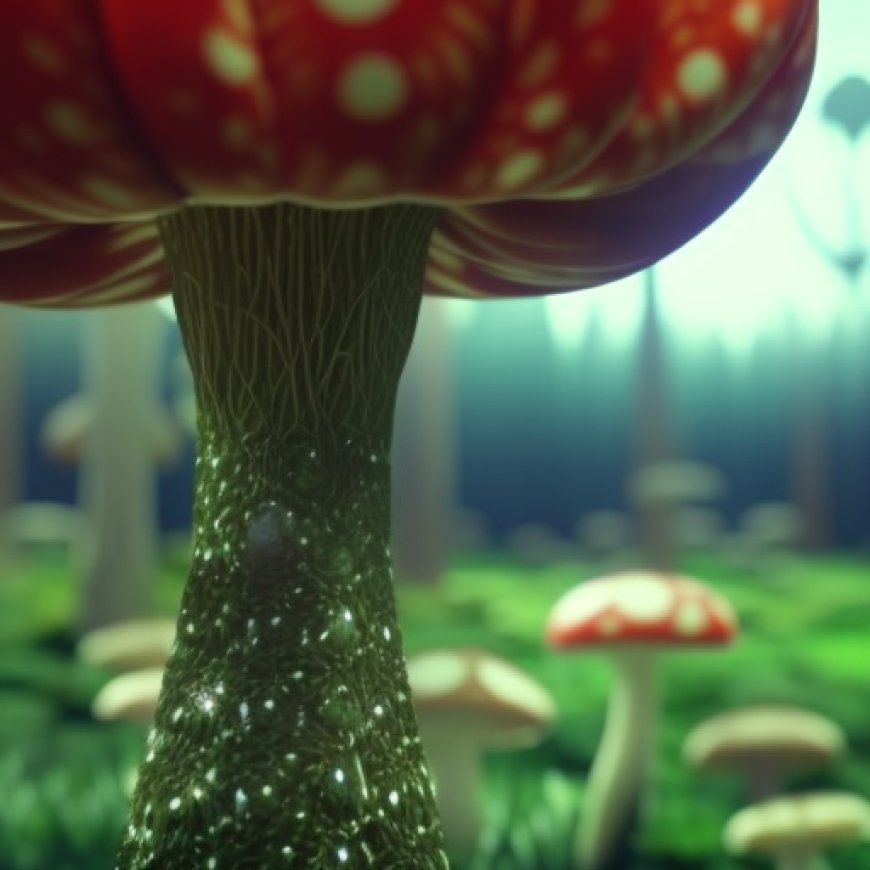Psychedelic mushroom use linked to lower psychological distress in those with adverse childhood experiences
Psychedelic mushroom use linked to lower psychological distress in ... PsyPost


In a recent study conducted in Canada, researchers have uncovered a potentially promising connection between the use of psychedelic mushrooms and a reduction in psychological distress, particularly among individuals who have experienced adverse childhood experiences.
The study, published in the Journal of Psychoactive Drugs, focused on exploring the therapeutic potential of psilocybin, the compound responsible for the hallucinogenic properties of magic mushrooms, in reducing psychological distress. Previous research has already suggested that psilocybin use might be associated with improved mental health, decreased suicidality, and reduced risk of various adverse outcomes.
Exploring the Relationship between Psilocybin Use and Psychological Distress
The researchers aimed to specifically investigate the relationship between psilocybin use and psychological distress among individuals who had experienced adverse childhood experiences (ACEs). ACEs, such as abuse, neglect, and exposure to violence, can have long-lasting negative effects on mental health. Understanding how psilocybin may impact individuals with a history of ACEs could provide valuable insights into its therapeutic potential.
The study was conducted by Kiffer G. Card, an assistant professor of health sciences at Simon Fraser University. Card explained that the study was motivated by the resurgence of interest in psychedelic medicine and the potential benefits of psilocybin for individuals with adverse childhood experiences.
Recruitment and Participants
To conduct their research, the scientists recruited participants through online advertisements on platforms like Facebook, Instagram, and Reddit, as well as through email and other social media channels. The study focused on people living in Canada, where legal regulations surrounding psilocybin use are evolving.
A total of 1,249 participants, with an average age of 39.8 years, took part in the study. The participants came from diverse backgrounds, with various gender identities, ethnicities, and sexual orientations.
Data Collection and Assessments
The participants provided information about their demographics, including age, gender, ethnicity, sexual orientation, income, education, and disability status. They also reported their psilocybin use history, including dosage levels, reasons for use, and when they last consumed it.
Two key assessments were conducted: The Adverse Childhood Experiences (ACE) Questionnaire assessed participants’ experiences of childhood trauma, while the Psychological Distress Scale (K6) measured the frequency of distressing symptoms experienced by participants in the past 30 days.
Promising Findings
The study found that participants who had used psilocybin in the past three months reported lower levels of psychological distress compared to those who had not used it during this period. This suggests that recent psilocybin use may be associated with a reduction in psychological distress.
Interestingly, the study also revealed that the effect of psilocybin on reducing psychological distress was particularly pronounced among individuals who had experienced higher levels of adverse childhood experiences. In other words, psilocybin seemed to have a more significant impact on reducing distress in those with a history of childhood adversity.
Furthermore, a significant proportion of participants had used psilocybin in their lifetime and expressed positive opinions about its benefits and safety. Many reported using it to address mental health and emotional challenges, indicating its potential as a self-help tool.
Implications and Limitations
Card emphasized that while the study provides promising evidence of the potential therapeutic benefits of psilocybin, it has some limitations. The research relied on an online, non-representative sample, which could introduce bias. Additionally, the study was cross-sectional and could not establish causal relationships between psilocybin use and reduced distress.
Nevertheless, Card noted that these findings align with other studies that have explored the therapeutic potential of psilocybin using different methodologies. The accumulating evidence supports the need for policy changes related to drug control and medical use of psilocybin and other psychedelic medicines.
The study, titled “Therapeutic Potential of Psilocybin for Treating Psychological Distress among Survivors of Adverse Childhood Experiences: Evidence on Acceptability and Potential Efficacy of Psilocybin Use,” was authored by Kiffer G. Card, Ashmita Grewal, Kalysha Closson, Gina Martin, Laura Baracaldo, Sandra Allison, Daniel J. Kruger, and Zach Walsh.

Join us, as fellow seekers of change, on a transformative journey at https://sdgtalks.ai/welcome, where you can become a member and actively contribute to shaping a brighter future.







